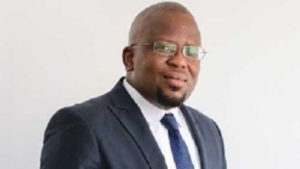The Kofi Annan International Peacekeeping Training Centre (KAIPTC), has urged maritime actors in the Gulf of Guinea (GoG) to adopt a harmonized approach in dealing with the Golf's insecurities.
Professor Kwaku Osei-Hwedie, the Dean, Faculty of Academic and Research, KAIPTC, said developing a maritime security culture means "in this sense that all maritime actors in the GoG had a shared knowledge and harmonized approach in dealing with the insecurities in the GoG."
He said understanding the issues and the inter-linked nature of maritime security was a critical first step towards finding solutions to the insecurity in the GoG.
“The maritime resource is a shared one, and no agency or state for that matter can independently survive without collaboration and coordination on how to harness and safeguard it for optimal use,” Prof Osei-Hwedie said on Thursday at the closing ceremony of an eight-day course on “Developing Maritime Security Culture in the GoG” at Prampram in the Greater Accra Region.
The eight-day programme was attended by 21 participants drawn from 10 countries in West and Central Africa; namely Ghana, Togo, the Ivory Coast, Liberia, Sierra Leone, Senegal, Nigeria, Guinea Bissau, Cameroun, and Congo Brazzaville.
The course, which is the third in series, was organized by the KAIPTC in collaboration with the Government of Denmark and the Inter-Regional Coordinating Centre (ICC), sought to expose participants to current knowledge on maritime security in the GoG.
The pilot course was held at Takoradi, Ghana in October, 2020 and received very good feedback.
The second course took place in Cotonou in Benin in November, 2020 and together 54 personnel have had their capacities strengthened so far.
This course had been designed with inputs from maritime security experts in the sub-region and reflects the most current realities on the ground.
Professor Osei-Hwedie said during the course, participants were heightened on their awareness of the maritime security challenges and opportunities in the GoG, but more importantly to have rekindled the desire for more collaboration and cooperation in their respective agencies.
Adding that the diverse mix of institutions from both the state and non-state actors, which participated in the course, depicts the synergies and alliances that were needed towards reducing maritime insecurity in the GG.
He urged the participants to continue to network, share ideas, reach out to each other, develop standard operating procedures (SOPs) to streamline their actions with each other and find innovative solutions to dealing with challenges in their respective fields.
Participants undertook a field visit to the Multinational Maritime Coordination Centre (MMCC) zone F located at the Christiansburg Castle, Accra where they received a brief on the operations and coordination roles of the MMCC zone F.
The Dean said the KAIPTC as one of the three ECOWAS centres of excellence continues to provide globally recognised capacity for all actors on African peace and security through training, education, research, and policy dialogues to foster peace and stability in Africa.
“This project is one of the tools we utilize in pursuit of our vision and mission as it seeks to promote a safer maritime domain in the GoG through the development of knowledge based-research products; institutionalising a convening platform for dialogue among stakeholders and developing the capacity of maritime practitioners in the GoG,” he said.
“But more specifically, in view of the worsening situations of instability around the region, being a maritime security practitioner at this moment comes with exceptional responsibilities.
“We need to keep our jurisdiction safe from the chaos that surround us and as beneficiaries of this specially designed course, we are confident that this training will help transform the way you work and the nature of your professional relationships.”
Mr Richard Yeboah, the Course Prefect, on the behalf of his colleagues, expressed gratitude to the Government of Denmark and the Inter-Regional Coordination Centre (ICC) for their continuous support in the organization of the course.
General News of Thursday, 25 March 2021
Source: GNA













